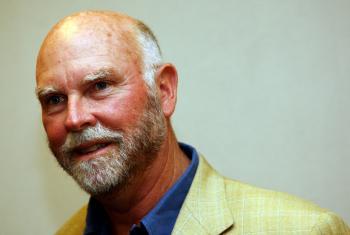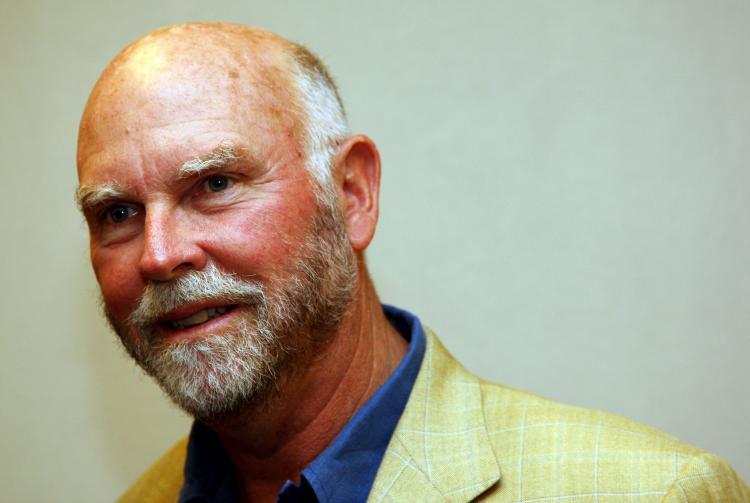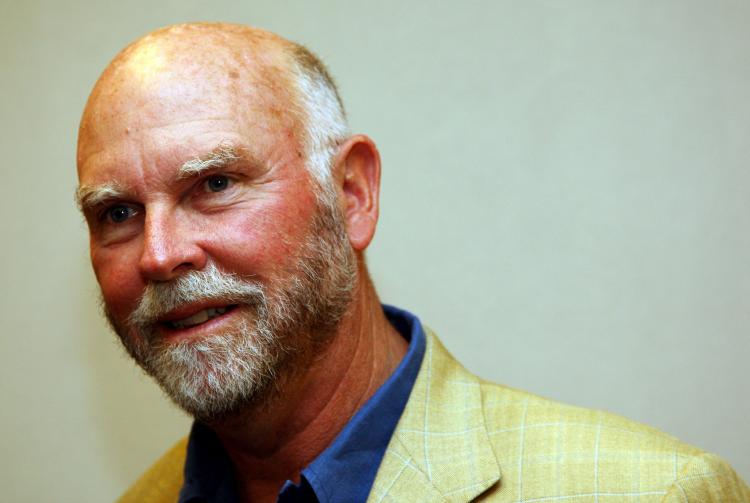A synthetic cell created by scientists in the United States poses a risk to humans and to the environment, and could have long-term negative consequences, the National Farmers Union (NFU) of Canada said in a statement issued last week.
On May 20, scientists from the J. Craig Venter Institute in Maryland announced that they had created the world’s first 100 percent synthetic bacterial cell designed by humans.
The institute said the technology could be used in biofuels, vaccines, and water and food projects. It has stressed that the development, which took 15 years and cost $40 million, will be used for beneficial purposes.
“This becomes a very powerful tool for trying to design what we want biology to do,” said Dr. John Craig Venter, president of J. Craig Venter Institute and leader of the research, at a news conference.
The scientists used a computer DNA map to create the cell, which has replicated itself over a billion times.
“This is the first self-replicating species that we have had on the planet whose parent is a computer,” Venter said.
The development has sparked a debate in the scientific community on ethics and safety.
Dr. Vyacheslav Tarantul of the Russian Academy of Sciences said in a Voice of Russia article, “Similar controversies began in the 1970s when genetic engineering emerged. People panicked when transgenic animals appeared but nothing bad happened.”
But many others are concerned with potential implications.
“This new technology raises serious concerns about who controls it, what it will be used for, and its potential impact,” said NFU President Terry Boehm according to the NFU statement.
“We cannot imagine the implications of synthetic life technology. It would be irresponsible to allow markets and patents to be the only control of a technology with this much potential power and unforeseen impact,” the statement wrote.
Some groups are worried that the technology could be used to make biological weapons. President Barack Obama has directed the recently created Presidential Commission for the Study of Bioethical Issues to look into the implications of the scientific development and report back to him within six months.
The NFU also raised the issue of “farmers and nature bear[ing] the brunt of the exploitive potential of these new technologies,” noting that farmers have lost markets due to the introduction of genetically modified plants into the environment.
Dr. George Church of Harvard Medical School proposed in a New Scientist article that “everybody in the synthetic biology ecosystem should be licensed like everybody in the aviation system is licensed.”
On May 20, scientists from the J. Craig Venter Institute in Maryland announced that they had created the world’s first 100 percent synthetic bacterial cell designed by humans.
The institute said the technology could be used in biofuels, vaccines, and water and food projects. It has stressed that the development, which took 15 years and cost $40 million, will be used for beneficial purposes.
“This becomes a very powerful tool for trying to design what we want biology to do,” said Dr. John Craig Venter, president of J. Craig Venter Institute and leader of the research, at a news conference.
The scientists used a computer DNA map to create the cell, which has replicated itself over a billion times.
“This is the first self-replicating species that we have had on the planet whose parent is a computer,” Venter said.
The development has sparked a debate in the scientific community on ethics and safety.
Dr. Vyacheslav Tarantul of the Russian Academy of Sciences said in a Voice of Russia article, “Similar controversies began in the 1970s when genetic engineering emerged. People panicked when transgenic animals appeared but nothing bad happened.”
But many others are concerned with potential implications.
“This new technology raises serious concerns about who controls it, what it will be used for, and its potential impact,” said NFU President Terry Boehm according to the NFU statement.
“We cannot imagine the implications of synthetic life technology. It would be irresponsible to allow markets and patents to be the only control of a technology with this much potential power and unforeseen impact,” the statement wrote.
Some groups are worried that the technology could be used to make biological weapons. President Barack Obama has directed the recently created Presidential Commission for the Study of Bioethical Issues to look into the implications of the scientific development and report back to him within six months.
The NFU also raised the issue of “farmers and nature bear[ing] the brunt of the exploitive potential of these new technologies,” noting that farmers have lost markets due to the introduction of genetically modified plants into the environment.
Dr. George Church of Harvard Medical School proposed in a New Scientist article that “everybody in the synthetic biology ecosystem should be licensed like everybody in the aviation system is licensed.”






